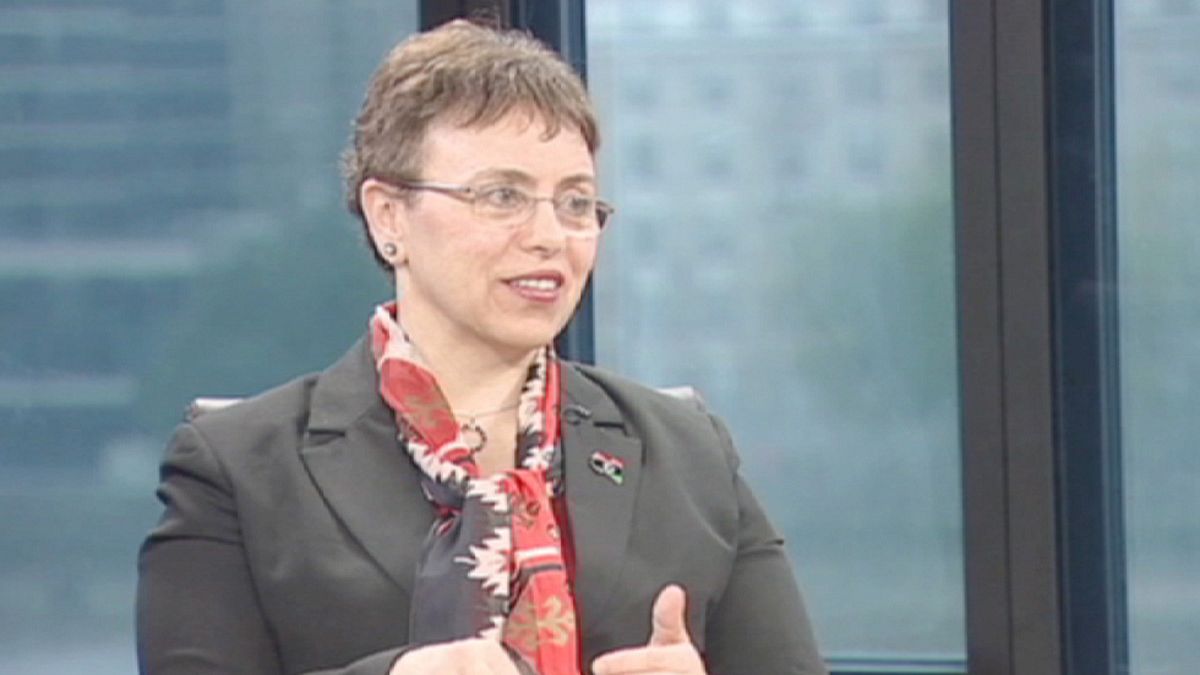Fatima Hamroush, Libya’s interim Health Minister spoke to euronews reporter Ali Sheikholeslami.
euronews: “Minister, you criticised the amount of corruption when you took your seat in November, what’s the situation today?”
Fatima Hamroush, Libyan Health Minister: “When I criticised the corruption when I came to my seat, I meant the corruption, the contracts that were made by the Ministry of Health for maintenance, equipment and drugs. Of course, most people involved in this corruption were from the previous government. Some of them are still working with us in the ministry, helping us to keep it going, and helping the corruption to keep going because they were benefiting from this pocket money, even at the lowest scale. But a new corruption has risen which has to do with the file for the injured. Some 127,000 Libyans have left the country for so-called treatment and the amount of money that’s been spent so far is three billion dollars.”
euronews: “So three billion dollars has been spent, but has it been spent wisely? Has it been spent on the people who were injured during the revolution?”
Fatima Hamroush: “Not really, some of them are still not being treated. Some have been going from one country to another trying to find treatment. Some haven’t even been sick at all, they just went for tourism, under the guise of medical treatment. Mind you, this has all been completely outside the control of Ministry of Health because the Committee for the Injured is a parallel body to the Health Ministry that was created when the new government was created, without any control from the ministry. It has its own independence, financial and administrative, and it reports
directly to the prime minister.”
euronews: “Eight months into the interim government and we’re just approaching the election of the new Libyan government. How would you compare the situation, before and after, particularly in corruption terms?
Fatima Hamroush: “Before, there was fear and anarchy. Now the fear has gone and the anarchy is there. So, I always say, OK there was a fear from a dictator and that’s why order was kept without law basically. Law wasn’t applied, but there was order. Now there’s no order, everything’s a mess because there’s no fear and I think the way to bring back order is to apply the law. People should fear the law, not fear a dictator.”
euronews: “The country has been run under the arbitrary rule of one man, and his cronies, for nearly half a century, so I’m guessing, one of the biggest issues is that arbitrary rule hasn’t allowed people to educate themselves in terms of their civil rights and entitlements. How they should, basically, choose who they want to lead the country. How is that issue being addressed?”
Fatima Hamroush: “What Gaddafi did was a systematic de-skilling of people – even those who learnt something couldn’t apply it – in order to be in control. It’s not a simple thing to go from this dark time to a really bright future. There is an interim period and that’s why we call it an interim government, an interim council. To move from A to B, definitely there are going to be a lot of hiccoughs and things to sort out to get the system that you’re looking for.”
